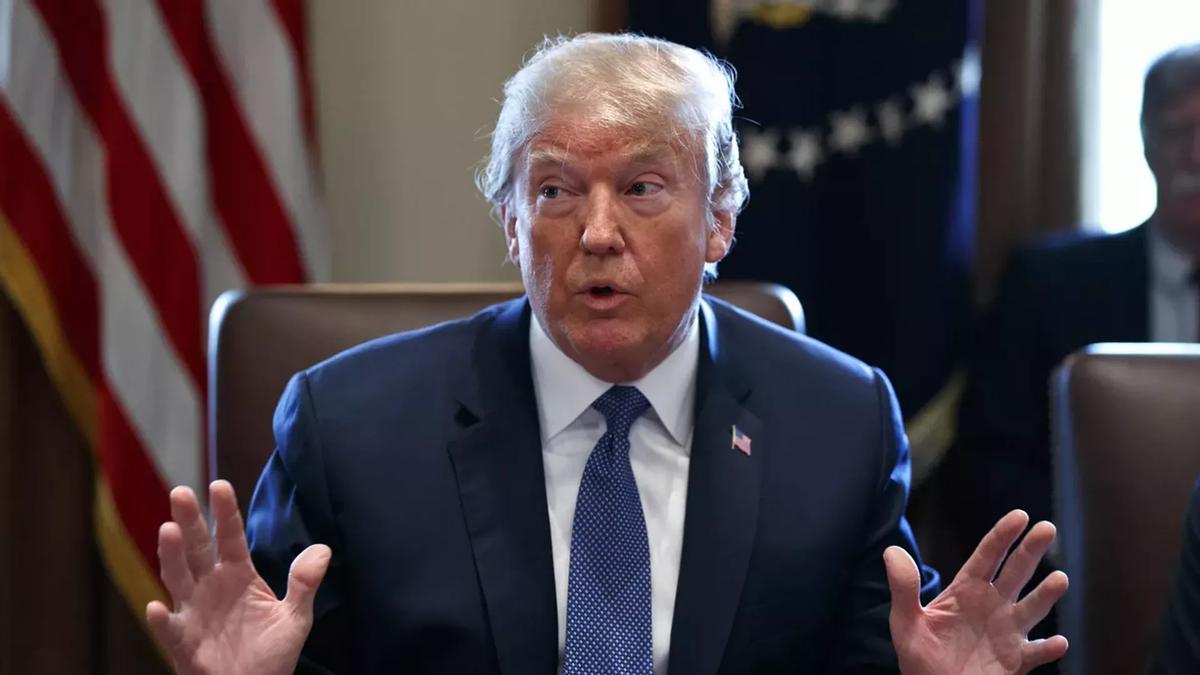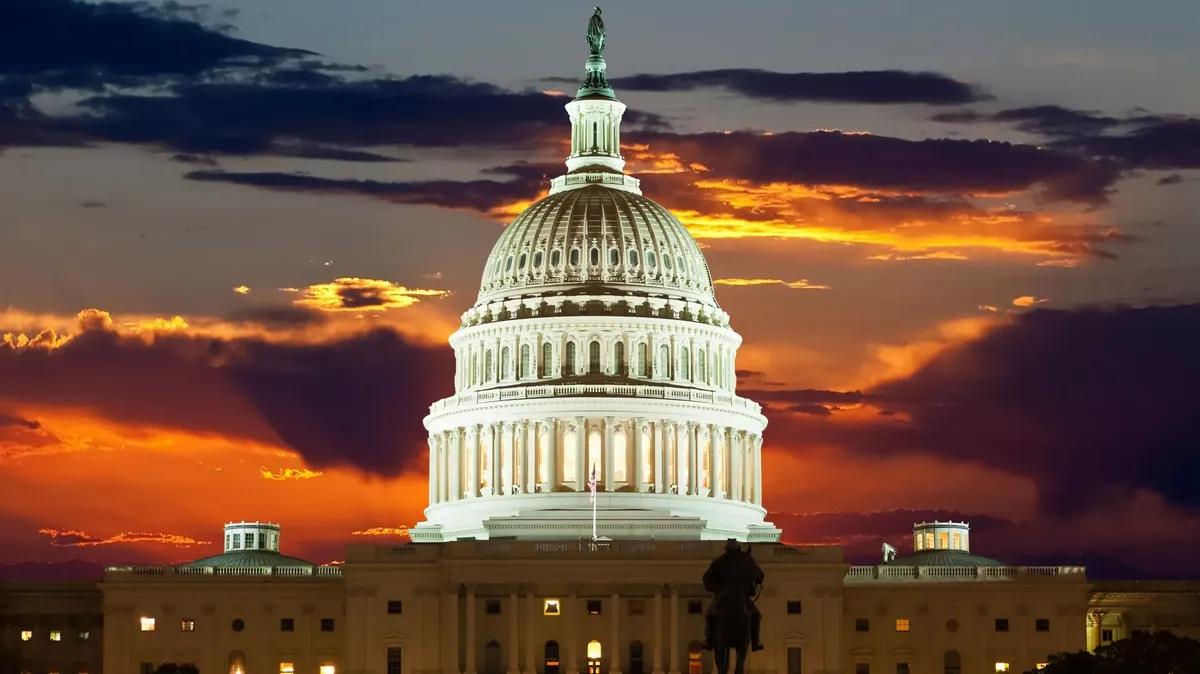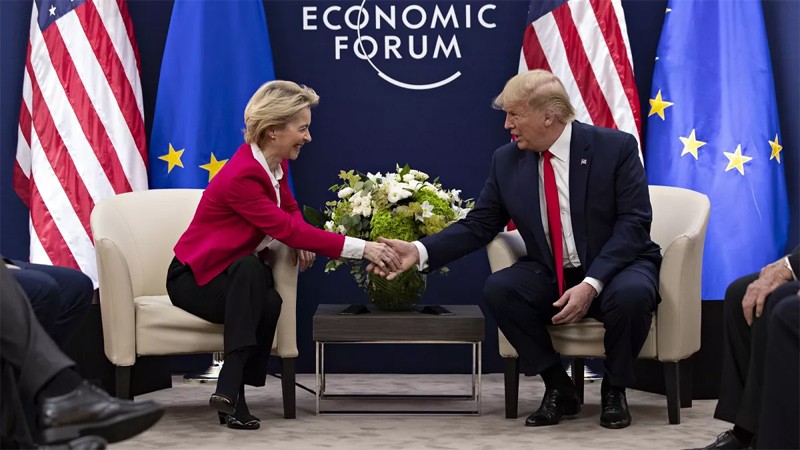After economies like Japan, the EU, and South Korea conceded to the U.S., Trump never imagined that the first “betrayal” would come from within the U.S. itself.
According to reports from CGTN and other media outlets, local time on August 1st, U.S. stocks plummeted, the dollar index flashed a crash, international oil prices dropped sharply, and international gold prices surged straight up.
Any one of these four sets of data would be considered““bad news”“for the U.S. economy and global growth, and now all four have appeared simultaneously. The shock to the global market and the U.S. economy itself can only be imagined.

The root of it all lies in Trump’s declaration of “victory” in the trade war.
On July 31 local time, U.S. President Trump signed an executive order, imposing “reciprocal tariffs” ranging from 10% to 41% on multiple countries and regions, and delaying the effective date from August 1 to August 7.
Adding to this, the separate tariffs the U.S. previously imposed on the EU, Japan, South Korea, Vietnam, and other economies, this move can be said to have fully implemented the panic and concerns triggered by Trump’s global trade war in April.
While the overall tariffs are slightly lower than what the U.S. previously announced, slightly lower is still lower, and the market had previously anticipated that Trump’s tariffs might be abandoned due to global opposition, only to be completely realized due to the compromise from economies like the EU, Japan, and South Korea.
This is a potent poison for the U.S. and global economies, which were already under pressure after the pandemic.
Firstly, for the U.S., despite Trump’s constant promotion of the victory in the trade war, claiming it has “brought the country back to life” with numerous large orders and investments, his supporters among the “rednecks” might believe him. However, U.S. capitalists and elites are not fools.

Recently, Paul Krugman, a Nobel Economics Prize laureate, has harshly criticized Trump’s tariff policy in an article titled “The Art of Truly Stupid Transactions,” blaming it for harming U.S. consumers and stating bluntly that the final cost of the tariffs will still be borne by U.S. consumers.
These elites, who clearly understand the harm tariffs are causing the U.S., are the true backbone of the American economy. They are fully aware of the significant damage Trump’s tariff policy is inflicting on the U.S. itself, and as a result, panic in the U.S. market has been triggered.
The panic sentiment exploded, which is a fatal blow to the United States, a country that relies on the virtual economy to sustain growth.
The stock market has now plummeted, with the Dow Jones index falling by 1.6%, the Nasdaq index dropping by over 2.3%, and the S&P 500 index falling sharply by over 1.8%, reflecting this most directly.
The panic in the U.S. market has also affected the global market, causing the U.S. dollar index to flash crash. This further lowered investors’ expectations for global economic growth, leading to a natural decline in the price of oil, a key production factor. Meanwhile, as a safe-haven investment, gold has seen increased demand.

In short, before Trump launched the trade war, the warnings China issued have become reality:The trade war and tariff war have no winners; they undermine the foundation of free trade, which may harm other countries but will ultimately rebound on themselves.
%% But no one expected the backlash would come so quickly.
Of course, from the U.S. perspective, the Trump administration’s choice to impose taxes is essentially drinking poison to quench thirst.
It’s not that they don’t know that taxes could endanger the wallets and economies of American consumers; rather, massive debt expenditures and fiscal pressures force the Trump administration to resort to desperate measures.

To put it simply, if taxes weren’t imposed, Trump wouldn’t have thought of any other way to keep the government running normally and avoid a U.S. debt crisis explosion, so even if this inevitably inflicts heavy damage on the U.S. and global economies, they have to stick with it.
At least until the Federal Reserve implements a large-scale interest rate cut and the U.S. fiscal pressure eases slightly, there might be room for compromise on the issue of taxation.
However, the drawback of treating the symptom rather than the disease is that it remains uncertain whether the original ailment poses a greater risk of fatal consequences or whether the wounds caused by the treatment are more likely to lead to death.
While the current threat of a U.S. debt crisis and fiscal bankruptcy could indeed lead to the collapse of the United States, an economic depression triggered by taxation could equally spell doom for the country.